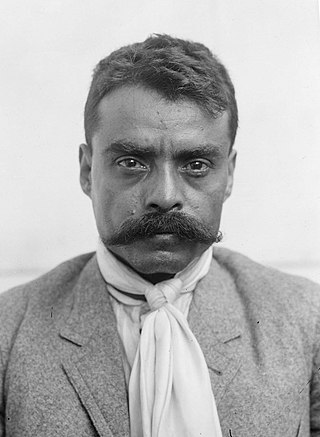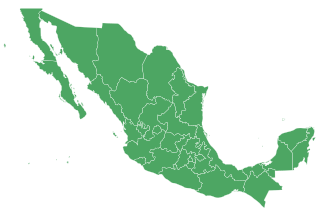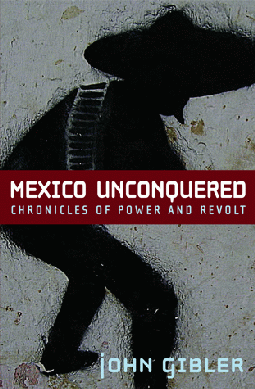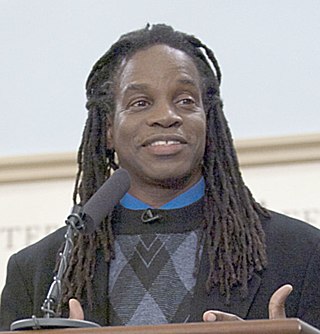
Emiliano Zapata Salazar was a Mexican revolutionary. He was a leading figure in the Mexican Revolution of 1910–1920, the main leader of the people's revolution in the Mexican state of Morelos, and the inspiration of the agrarian movement called Zapatismo.

The Zapatista Army of National Liberation, often referred to as the Zapatistas, is a far-left political and militant group that controls a substantial amount of territory in Chiapas, the southernmost state of Mexico.

Michael John Parenti is an American political scientist, academic historian and cultural critic who writes on scholarly and popular subjects. He has taught at universities as well as run for political office. Parenti is well known for his Marxist writings and lectures. He is a notable intellectual of the American Left.

Timothy Jacob Wise is an American activist and writer on the topic of race. He is a consultant who provides anti-racism lectures to institutions.
The Other Campaign is a political program by the Zapatista Army of National Liberation for the recognition and protection of indigenous rights and autonomy in Mexico. This program began in January 2006, and sent Subcomandante Marcos, the main spokesperson for the campaign, to travel across Mexico for several months. This tour was intended to create connections among the Zapatistas and pre-existing resistance groups throughout Mexico.

Anarchism in Mexico, the anarchist movement in Mexico, extends from Plotino Rhodakanaty's organization of peasant workers in the 1890s, to Ricardo Flores Magón's activism prior to the Mexican Revolution, to the punk subcultures of the 1990s.
A popular assembly is a gathering called to address issues of importance to participants. Assemblies tend to be freely open to participation and operate by direct democracy. Some assemblies are of people from a location, some from a given workplace, industry or educational establishment others are called to address a specific issue.

The Mexican state of Oaxaca was embroiled in a conflict that lasted more than seven months and resulted in at least seventeen deaths and the occupation of the capital city of Oaxaca by the Popular Assembly of the Peoples of Oaxaca (APPO). The conflict emerged in May 2006 with the police responding to a strike involving the local teachers' trade union by opening fire on non-violent protests. It then grew into a broad-based movement pitting the Popular Assembly of the Peoples of Oaxaca (APPO) against the state's governor, Ulises Ruiz Ortiz. Protesters demanded the removal or resignation of Ortiz, whom they accused of political corruption and acts of repression. Multiple reports, including from international human rights monitors, accused the Mexican government of using death squads, summary executions, and even violating Geneva Conventions standards that prohibit attacking and shooting at unarmed medics attending to the wounded. One human rights observer claimed over twenty-seven were killed by the police violence. The dead included Brad Will, Emilio Alonso Fabián, José Alberto López Bernal, Fidel Sánchez García, and Esteban Zurita López.

General elections were held in Mexico on 21 August 1994. The presidential elections resulted in a victory for Ernesto Zedillo of the Institutional Revolutionary Party (PRI), whilst the PRI won 300 of the 500 seats in the Chamber of Deputies and 95 of the 128 seats in the Senate. Voter turnout ranged from 77.4% in the proportional representation section of the Chamber elections to 75.9% in the constituency section.

Neozapatismo or neozapatism is the political philosophy and practice devised and employed by the Zapatista Army of National Liberation, who have governed a number of communities in Chiapas, Mexico since the beginning of the Chiapas conflict. According to its adherents, it is not an ideology: "Zapatismo is not a new political ideology or a rehash of old ideologies. .. There are no universal recipes, lines, strategies, tactics, laws, rules or slogans. There is only a desire: to build a better world, that is, a new world."

John Ross was an American author, poet, freelance journalist, and activist who lived in Mexico and wrote extensively on its leftist political movements.
On January 1, 1994, the Zapatista Army of National Liberation (EZLN) coordinated a 12-day Zapatista uprising in the state of Chiapas, Mexico in protest of the enactment of the North American Free Trade Agreement. The rebels occupied cities and towns in Chiapas, releasing prisoners and destroying land records. After battles with the Mexican Army and police, a ceasefire was brokered on January 12. Around 300 people were killed.

Subcomandante Marcos is the de facto spokesman for the Zapatista Army of National Liberation (EZLN), a Mexican rebel movement. He was also known as Delegado Cero during the EZLN's Other Campaign (2006–2007), and since May 2014 has gone by the name Subcomandante Galeano.

Mexico Unconquered: Chronicles of Power and Revolt is a book by John Gibler on national and regional politics in Mexico. The text discusses Mexico's historical continuity of conquest and the social movements that have formed as a result. Mexico Unconquered was published in 2009 by City Lights Books.

Rafael Sebastián Guillén Vicente is a Mexican insurgent, the former military leader and spokesman for the Zapatista Army of National Liberation (EZLN) in the ongoing Chiapas conflict, and a prominent anti-capitalist and anti-neoliberal. Widely known by his initial nom de guerreSubcomandante Insurgente Marcos, he has subsequently employed several other pseudonyms: he called himself Delegate Zero during the Other Campaign (2006–2007), and since May 2014 has gone by the name Subcomandante Insurgente Galeano, which he adopted in honor of his fallen comrade Jose Luis Solis Lopez, his nom de guerre being Galeano, aka "Teacher Galeano". Marcos bears the title and rank of Subcomandante, as opposed to Comandante, because, he is subordinate to, and under the command of, the indigenous commanders who constitute the EZLN's Clandestine Revolutionary Indigenous Committee's General Command.

Jesús Salgado was a revolutionary leader and soldier in the Mexican Revolution, sometimes called the "Guerrero Zapata". He initially supported Francisco Madero but in 1911 threw his support behind Emiliano Zapata and remained loyal to the Zapatista cause until his death in 1919.

Clarence Lusane is an American author, activist, lecturer and freelance journalist. His most recent major work is his book The Black History of the White House.

To Die in Mexico: Dispatches from Inside the Drug War is a book by John Gibler published in 2011. This is his second book, following Mexico Unconquered: Chronicles of Power and Revolt (2009). The work combines reporting and discussion with people involved with and affected by Mexico's drug war. To Die in Mexico includes stories of kidnapped Mexican journalists, and family members of people killed in conflict.
Magonism is an anarchist, or more precisely anarcho-communist, school of thought precursor of the Mexican Revolution of 1910. It is mainly based on the ideas of Ricardo Flores Magón, his brothers Enrique and Jesús, and also other collaborators of the Mexican newspaper Regeneración, as Práxedis Guerrero, Librado Rivera and Anselmo L. Figueroa.

Todd Miller is a journalist based in Tucson, Arizona. He is the author of Border Patrol Nation: Dispatches from the Front Lines of Homeland Security, Storming the Wall: Climate Change, Migration, and Homeland Security, and Empire of Borders: The Expansion of the U.S. Border Around the World.















